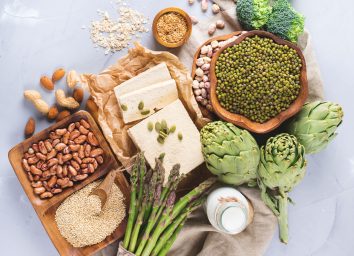The Worst Foods for IBS, According to Dietitians
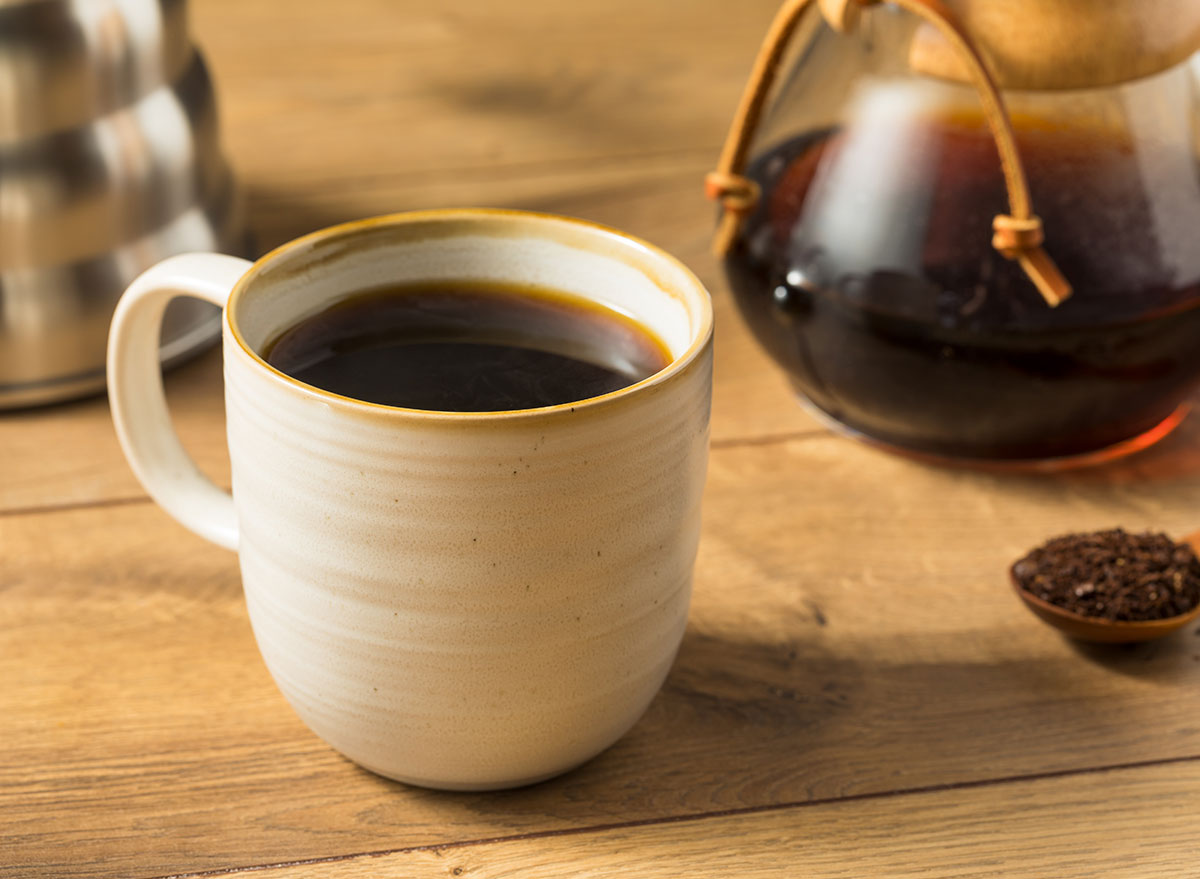
Irritable bowel syndrome, or IBS, is a condition that affects between 25 and 45 million people in the United States. It is a condition that upsets part of the intestines and is linked to symptoms like abdominal pain, cramping, diarrhea, and constipation. Unfortunately, symptoms can vary from person to person, which makes providing definitive dietary guidelines to manage symptoms difficult.
When people try to manage their IBS symptoms, they may have to do a little trial and error before they find what works best for them. While following diets including foods that are low in fermentable oligosaccharides, disaccharides, monosaccharides, and polyols (FODMAPs) has been shown to manage certain IBS symptoms in many people, it is not a magic bullet for all. Other people may find more success in managing their symptoms following a low fat, gluten-free, or a variation of other diets. (Related: The #1 Best Diet for IBS, According to a Dietitian.)
Although the "perfect IBS diet" will vary from person to person who is managing IBS symptoms, there are some common foods that trigger symptoms more than others. So, if you have a diagnosis of IBS, avoiding these foods may be a good place to start to decrease the incidence of cramping, diarrhea, constipation, and other unsavory and pretty annoying side-effects of this syndrome. Read on, and for more on how to eat healthy, don't miss 7 Healthiest Foods to Eat Right Now.
Apple Juice
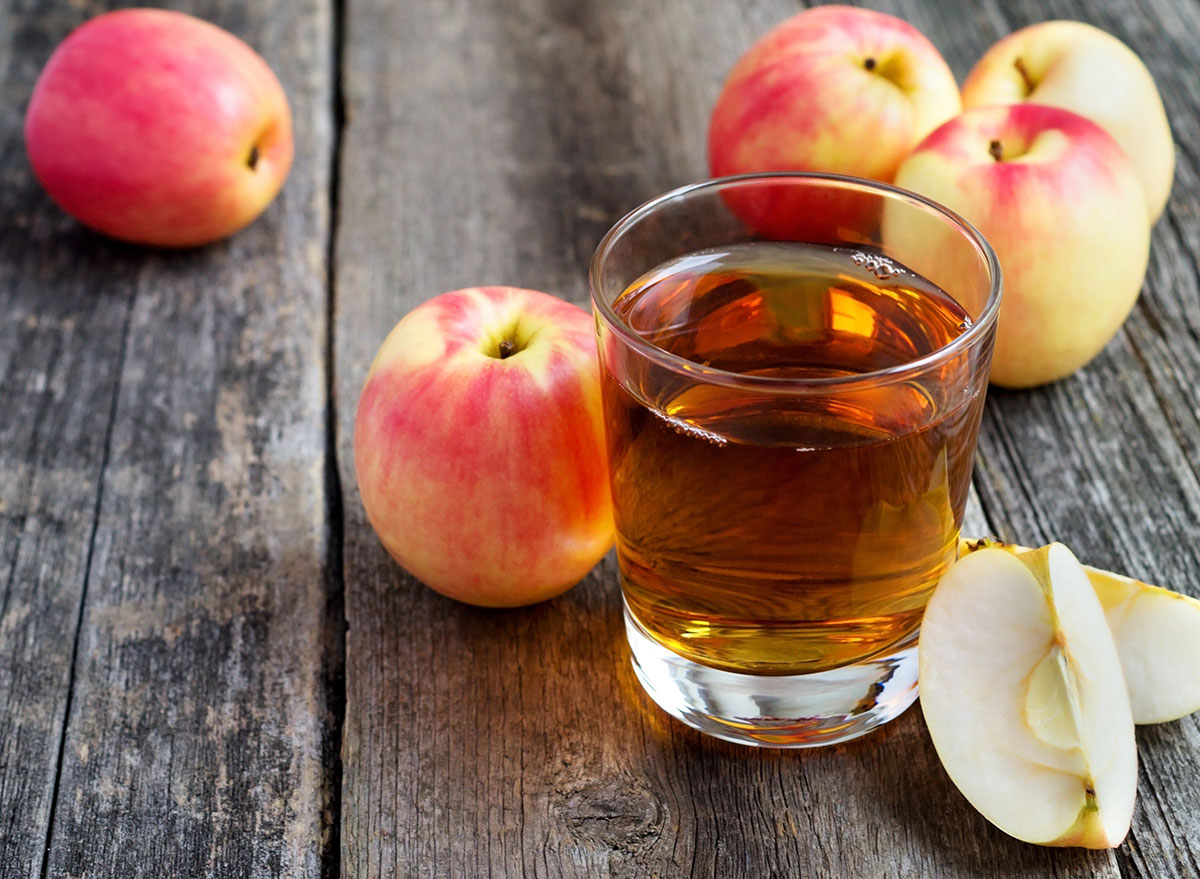
"Apples are high in fructose (fruit sugar), but do not contain glucose, which aids in the absorption of fructose," explains Lisa Andrews, MEd, RD, LD, a registered dietitian and owner of Sound Bites Nutrition. She explains that fructose is a high FODMAP food, which can cause GI discomfort such as gas or abdominal pain in those with IBS.
What To Drink Instead: Cranberry Juice
Along with being a low FODMAP beverage, cranberry juice may be a particularly good choice for those with IBS. A bacteria called Helicobacter pylori (h. pylori) has often been detected in patients with IBS.
Cranberries naturally contain proanthocyanidins (or "PACs"), polyphenols that have been shown to reduce H. pylori infection in certain cases.
Recently, a new clinical trial found consuming cranberry juice containing 44 milligrams of PACs per 240-milliliter serving twice daily for eight weeks resulted in a 20% reduction in the H. pylori infection rate in Chinese adult participants, when compared to those consuming lower amounts of juice and a placebo, but more research is needed.
So, drinking cranberry juice may not only simply be a low FODMAP choice, but it also may help rid your body of potentially harmful bacteria too.
Garlic

"Garlic is a common trigger for IBS because it contains high amounts of fructans, which are a part of fructose. It is considered a high FODMAP food that can cause digestive issues for those with IBS," explains Carrie Gabriel, MS, RDN, a Los Angeles-based registered dietitian.
What To Eat Instead: Herbs
Instead of using garlic in dishes, Gabriel suggests getting a boost of flavor by using low FODMAP herbs like basil, parsley, or oregano.
Fresh Asparagus

"Fresh asparagus is high in fructose, a category of carbohydrates known as 'fruit sugar' that can be found in some vegetables that may ferment in the gut and cause excessive bloating or abdominal discomfort," explains Andrew Akhaphong, MS, RD, LD, a registered dietitian from Mackenthun's Fine Foods.
What To Eat Instead: Canned or pickled asparagus
The pickling or canning process causes of the FODMAPs found in the asparagus can help them leave the tissue. Then, they become saturated in the brine or canning solution, Akhaphong explains.
He advises that since these options usually result in asparagus that contains more salt than fresh, soaking them in a large bowl of water to leach out the mineral, rinsing, patting dry, and then seasoning the asparagus before roasting it in the oven can minimize the sodium content.
Onions
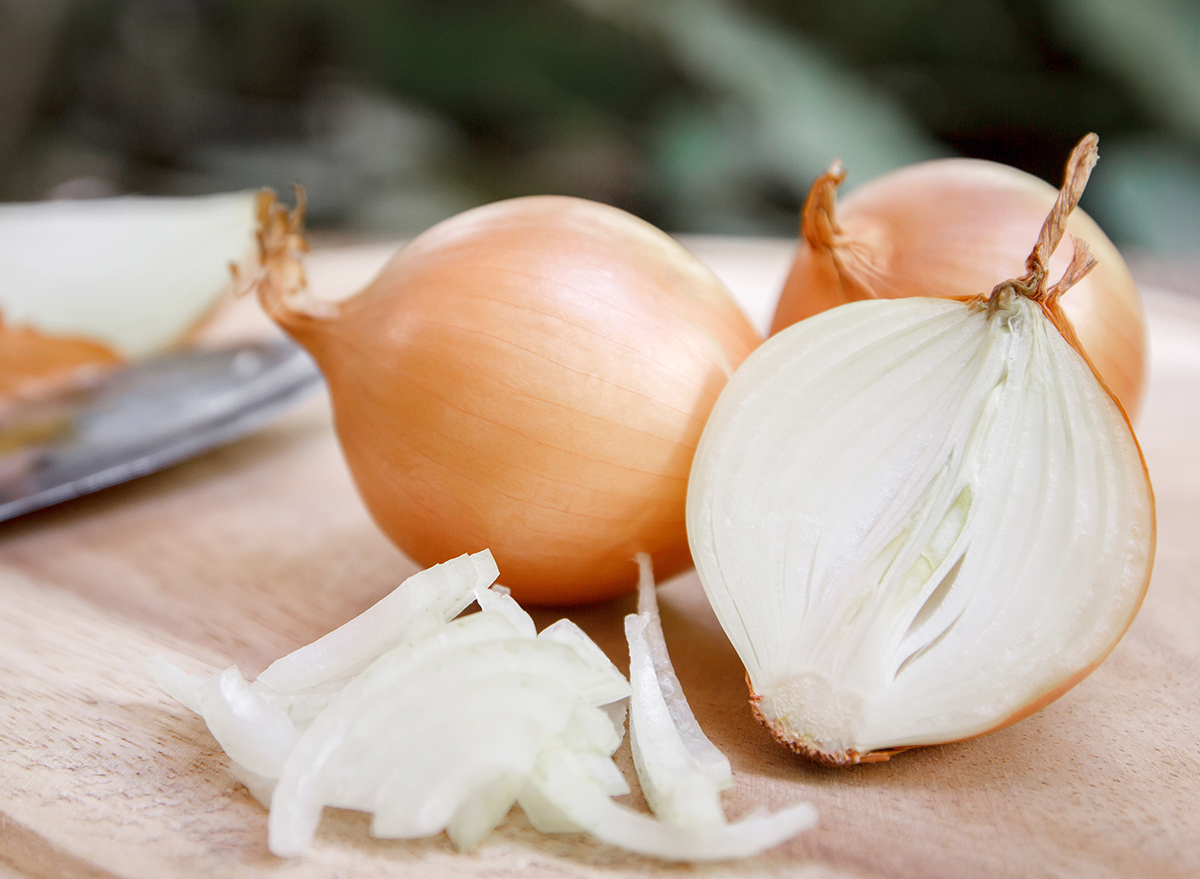
"Onions are a common trigger for IBS symptoms due to their fructan content, which is a type of carbohydrate that is not well tolerated by those with irritable bowel syndrome," explains registered dietitian Lauren Harris-Pincus, MS, RDN, author of The Protein-Packed Breakfast Club.
What To Eat Instead: Scallions
Instead of eating onions, Harris-Pincus suggests enjoying the green tops of scallions which are low in FODMAPs and impart a similar flavor. Just make sure to avoid the white bulb part for the best results.
Mixed alcoholic drinks
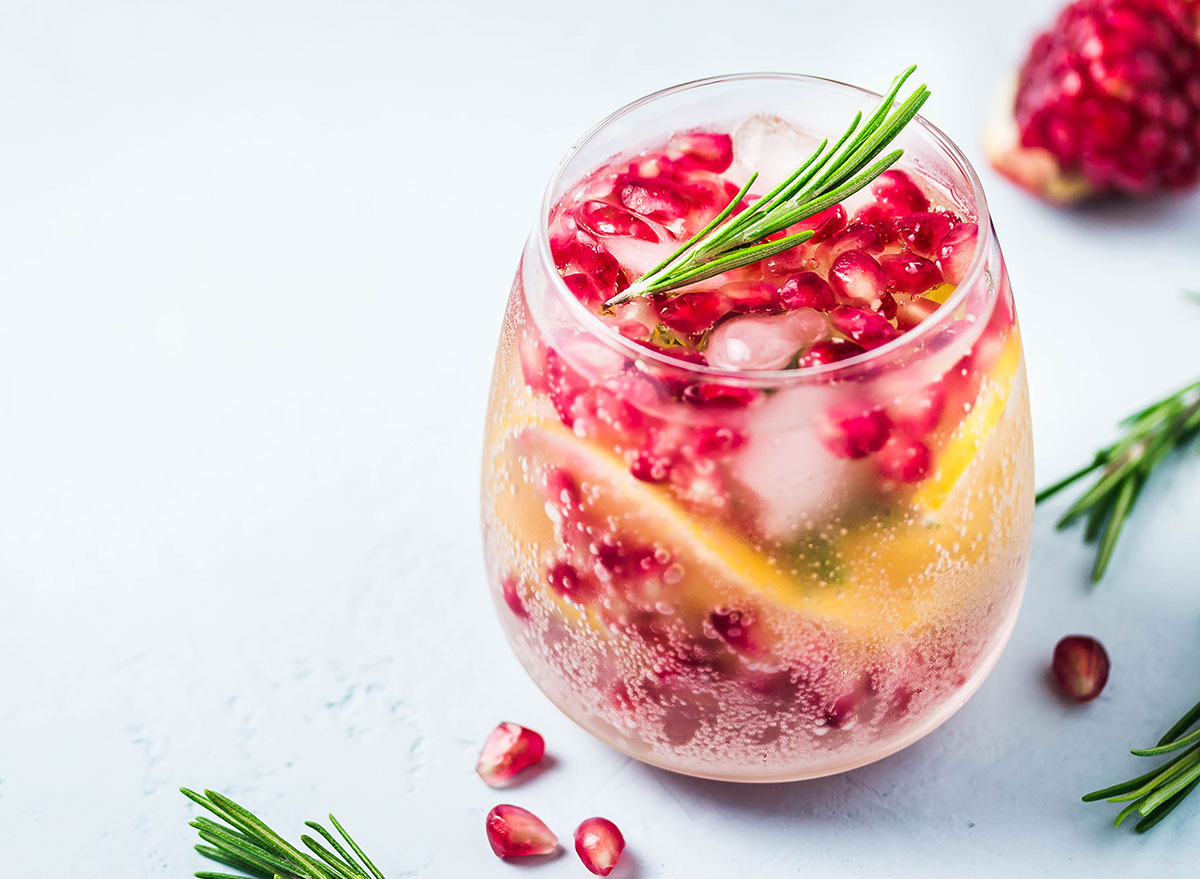
Especially if you are binge-drinking, alcohol can trigger symptoms of IBS – especially diarrhea, stomach pain, and indigestion. Mild and moderate drinking may trigger symptoms as well.
And since many drinks are mixed with options that are high in FODMAPs, sugar, or carbonation, unless you are making the drink yourself, it is best to stay away.
What To Drink Instead: White Wine
Dry white wine is often a low FODMAP choice and is well-tolerated, as long as you are just sticking to one (maybe two) glasses.
Read more: Dangerous Side Effects of Drinking Alcohol, According to the CDC
Caffeinated Coffee
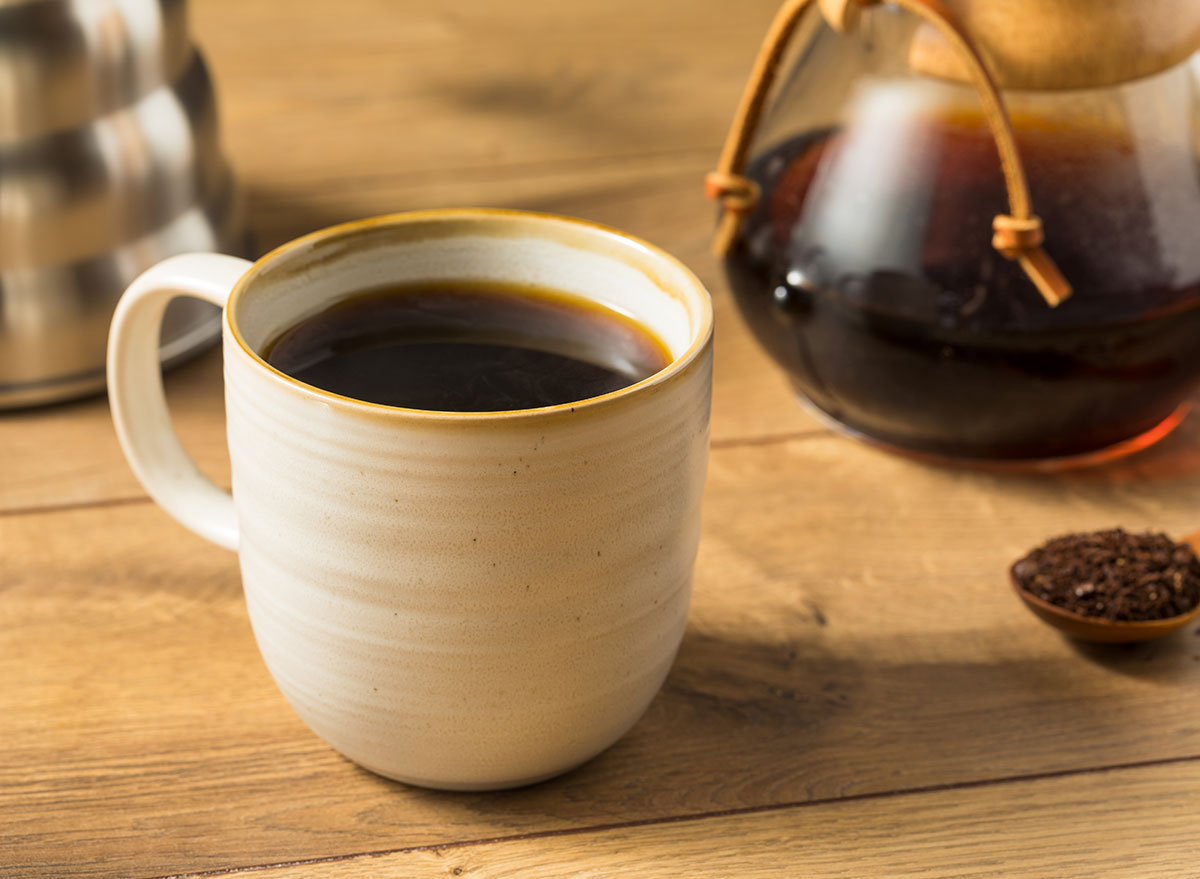
Drinking caffeinated drinks, like coffee, can not only stimulate your brain and kick your day into high gear. Caffeine can also stimulate your intestines, which can cause overactivity and, unfortunately, diarrhea.
What To Drink Instead: Rooibos Tea
Rooibos tea is an herbal tea that is naturally caffeine-free, rich in antioxidants and is a low FODMAP beverage. Enjoy this tea hot in the morning or over ice on a warm day for a refreshing and hydrating option that should keep your tummy happy.
Large avocado

Avocados are one of the healthiest foods around, and thankfully, are an excellent addition to toasts, sandwiches, salads, and a slew of other dishes.
While avocados offer many health benefits, downing a large one may result in you not feeling so great later on, as a large avocado is considered to be a high FODMAP food.
What To Eat Instead: Small Avocado
While a large avocado provides too many FODMAPS, a small avocado is a low FODMAP food that is a-ok for many people managing IBS. Moral of the story? Portion sizes matter.
Fried French fries
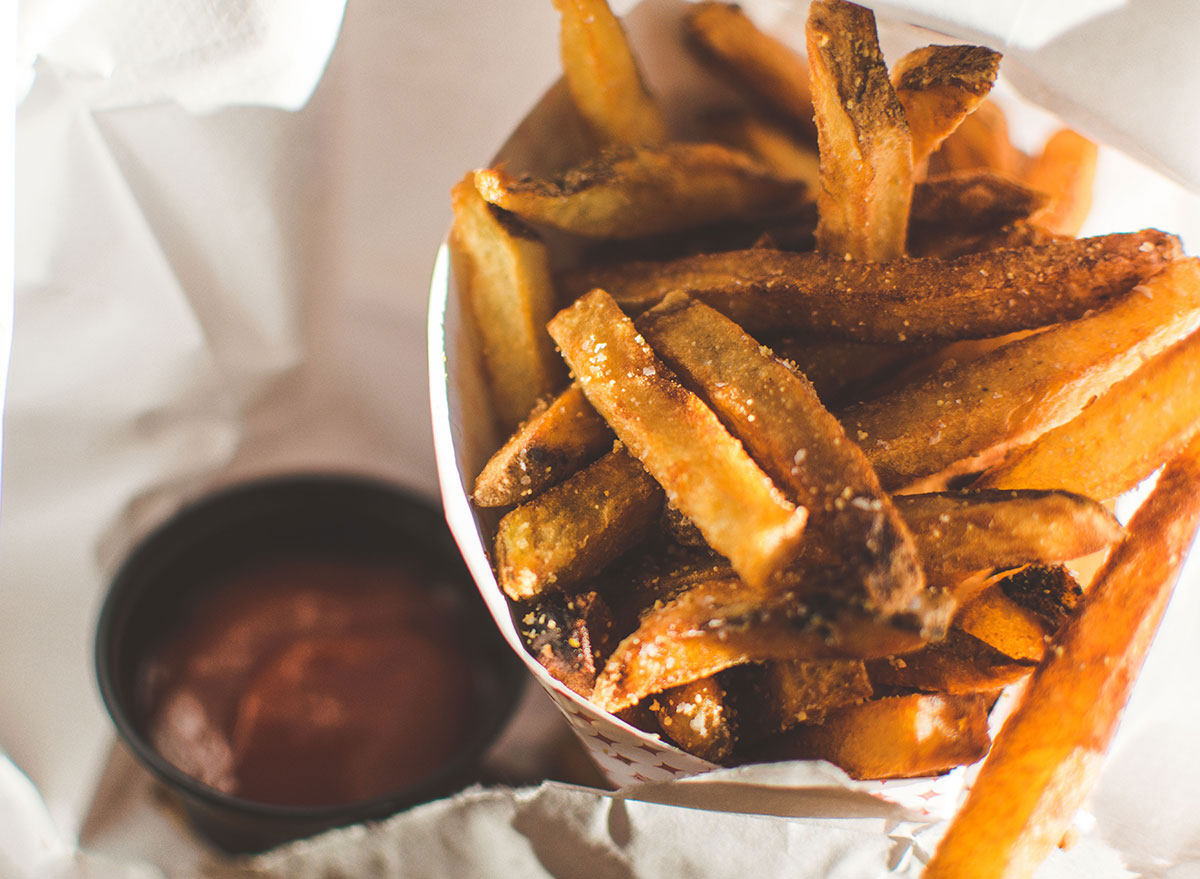
Fried foods of all kinds can trigger IBS symptoms in a major way. French fries are often deep-fried and loaded with unhealthy fats.
What To Eat Instead: Baked Potato
Know that the potato isn't the villain in the French fry story. Potatoes can be well-tolerated when managing IBS. Some people may do better if they avoid the skin if the skin is on the thicker side, so you may need to do a little trial and error.
Honey
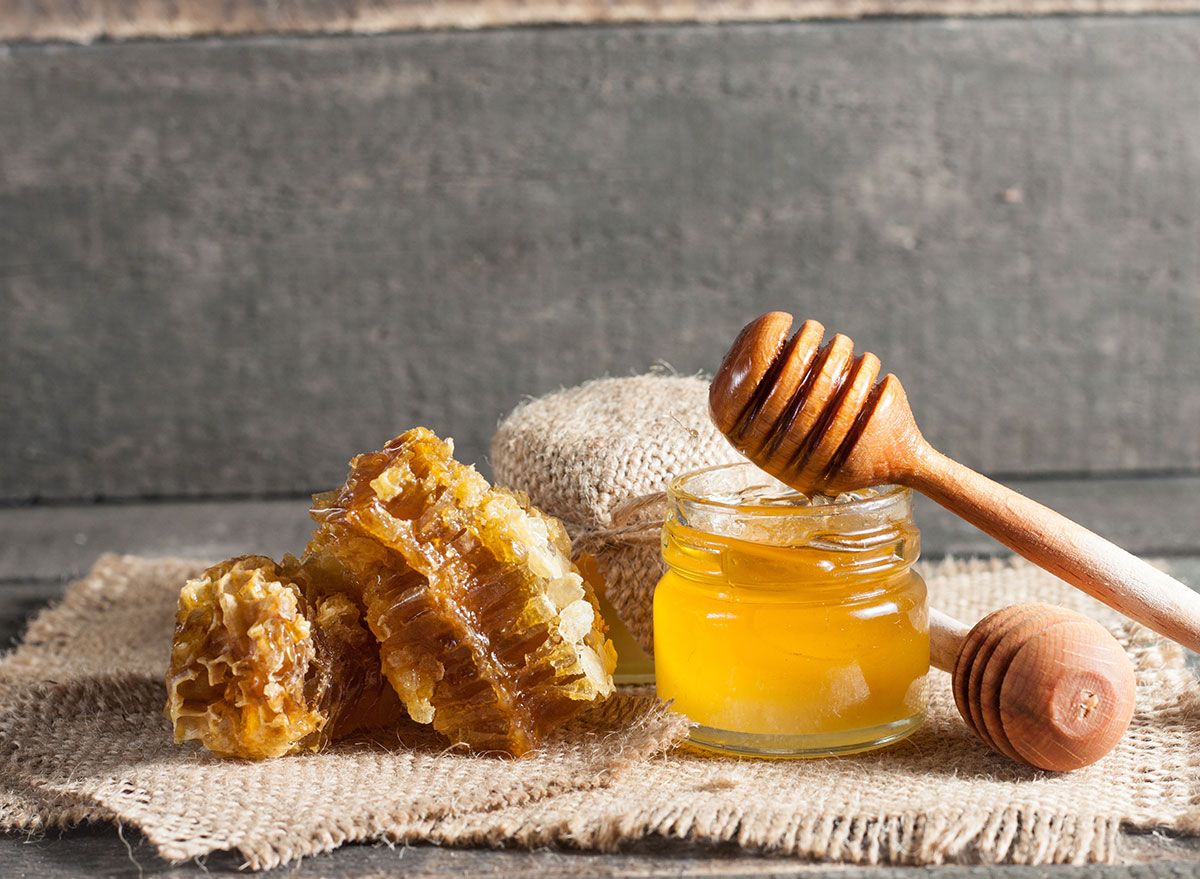
Honey can cause some major discomfort when managing IBS symptoms, as the natural sugars found in this condiment can exacerbate some serious side effects.
What To Eat Instead: Pure stevia
Stevia is a natural sweetener derived from the leaves of the Stevia rebaudiana leat. As long as the stevia you are choosing is pure stevia and not a blend that contains ingredients like erythritol, adding a moderate amount to your dishes should be well tolerated for most people.
Black Beans
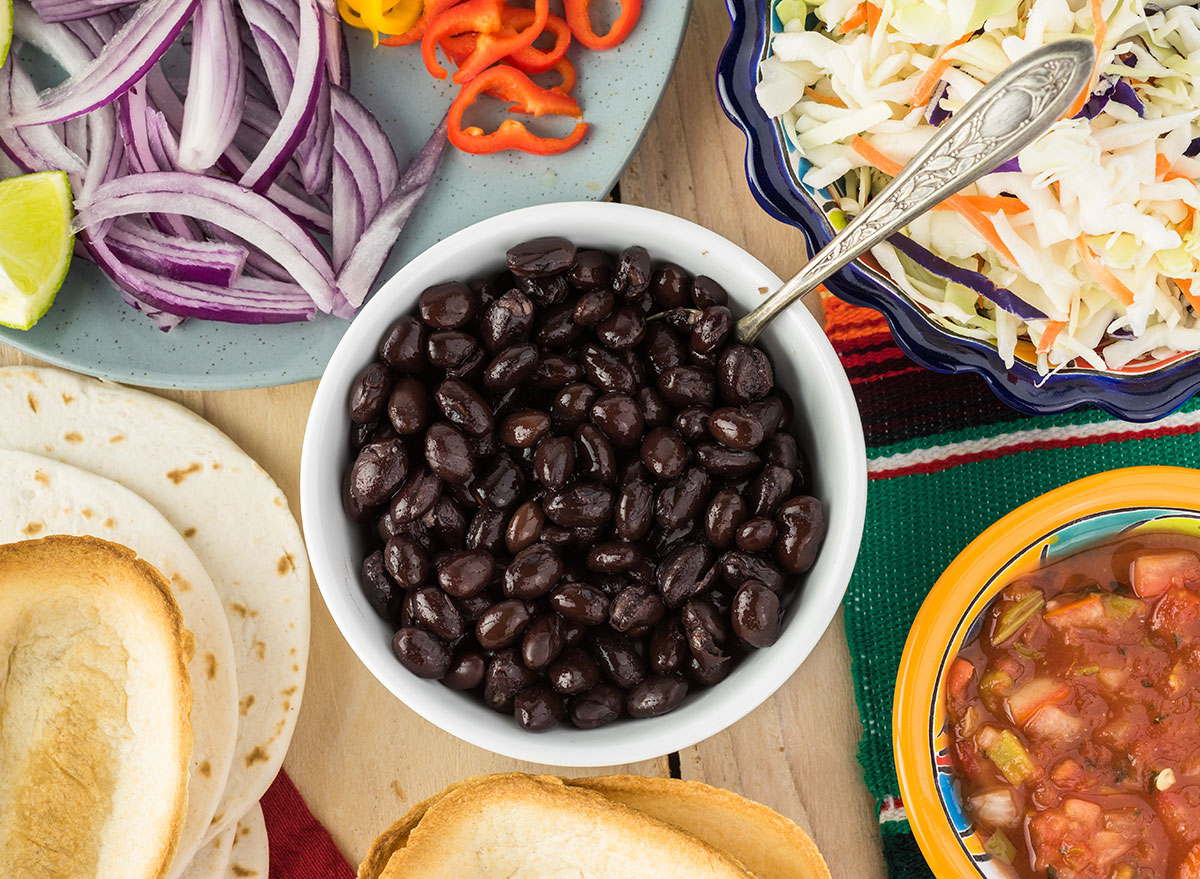
Black beans are a staple in many kitchens. But unfortunately, they contain galactooligosaccharides and glucans – components that may not be well tolerated in those managing IBS. If you are having a small amount of these little nuggets (like 1/4 cup or less), they may be ok to include. But anything more may be problematic for some.
What To Eat Instead: Canned and well-rinsed chickpeas
If you need a bean or pulse included in a dish, choosing canned and well-rinsed chickpeas is your best bet. Canned chickpeas soak for a long period of time, leading to certain potentially triggering components leaching out.
Just make sure you are not choosing a canned version that is pre-flavored with garlic or onion when you are picking your garbanzos. For more on this legume, check out What Happens to Your Body When You Eat Canned Chickpeas.
Chili peppers
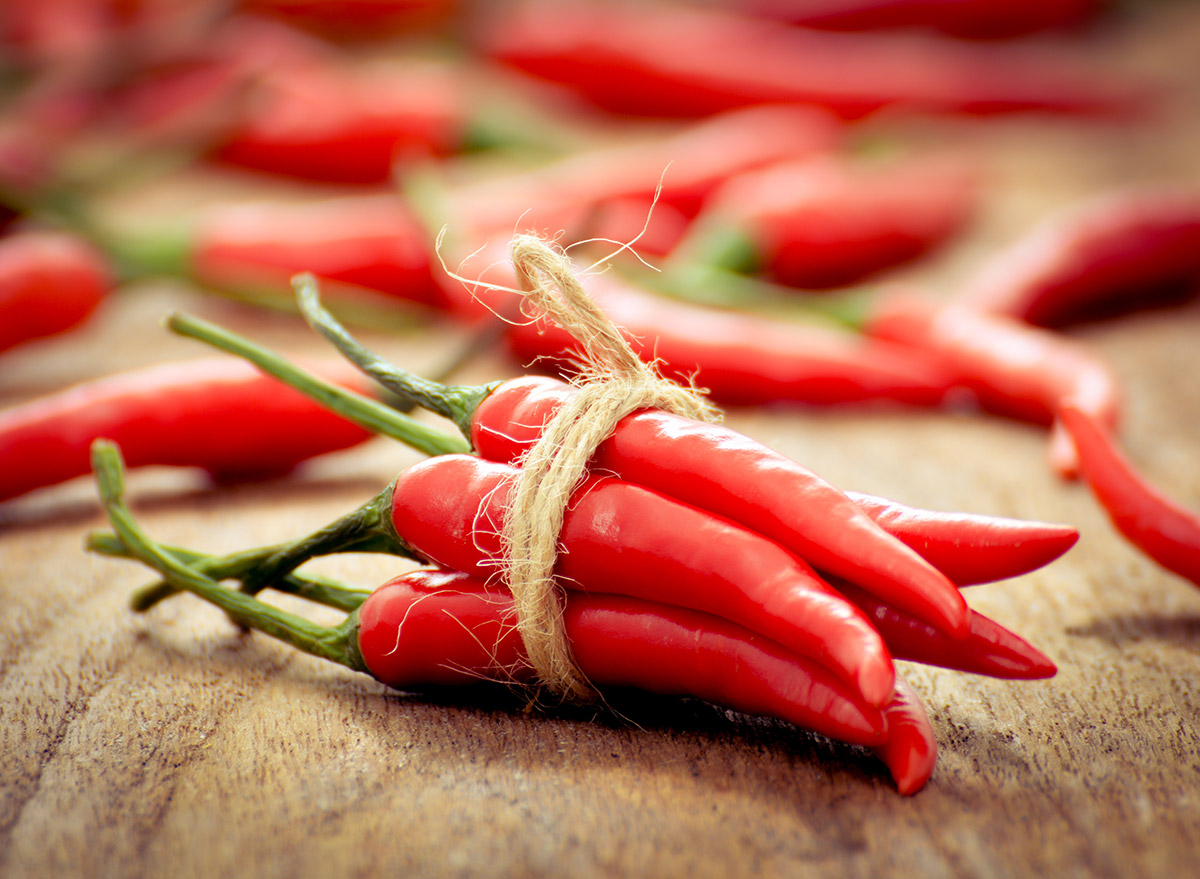
Chili peppers certainly bring on the heat to a dish or meal. But including them can also contribute to abdominal pain in those with IBS.
What To Eat Instead: Red Bell Pepper
If you are looking for a red veggie substitute for chili peppers, bell peppers can be a good substitute for some people (not all). Note that although bell peppers are a low FODMAP food, they do contain capsaicin, a component that may trigger symptoms in some people with IBS.
And for more, check out What Happens to Your Body When You Eat Bell Peppers.

